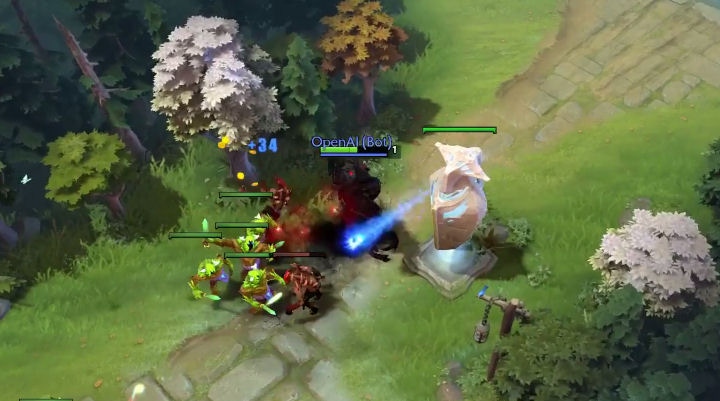An organisation devoted to the development of artificial intelligence has created a bot programme so sophisticated it beat some of the world’s best Dota 2 players.
August 14, 2017

An organisation devoted to the development of artificial intelligence has created a bot programme so sophisticated it beat some of the world’s best Dota 2 players.
For anyone unfamiliar with Dota 2 it’s an evolution of the Warcraft 3 mod Defense of the Ancients, now owned by games developer and platform company Valve. It’s a real-time strategy game in which you take control of a hero whose powers increase over the course of the game according to choices made by the player. The objective is to destroy the enemy base which is protected by AI controlled ‘creeps’ and towers as well as opposing heroes.
There are currently 113 heroes to choose from and while there is only one computer environment in which the game is played, it is open and unstructured so game-play choices are unlimited, just as in regular sport. Due to the large number of variables and playing techniques Dota 2 is considered one of the most difficult games to learn and master.
Dota 2 is by far the richest e-sport, with the most recent International tournament awarding the winning team $10 million. Non-profit AI research company OpenAI chose that tournament to publicise its Dota 2 bot programme by pitching it against some of the leading professional players in 1v1 competition.
The Open AI bot played Dendi live and beat him, having previously beaten the top 1v1 player SumaiL and, as you can see in the video below, the top overall player Arteezy. Only one hero was used – Shadow Fiend – but otherwise this seems to have been to all intents and purposes a �‘real life’ environment. Furthermore this is considered a good test of AI, as opposed to just automation in general, as there was considered to be no significant speed advantage to be had.
“Dota 1v1 is a complex game with hidden information,” said the OpenAI blog. “Agents must learn to plan, attack, trick, and deceive their opponents. The correlation between player skill and actions-per-minute is not strong, and in fact, our AI’s actions-per-minute are comparable to that of an average human player.”
The really clever AI bit seems to have been that the AI increased its Dota 2 sophistication entirely via self-play – in other words there was no human intervention in the learning process. Self-teaching AI has clear implications regarding rate of learning and thus utility, although the inevitable Terminator anxieties about machine self-awareness also come into play.
Your correspondent is a regular Dota 2 player, mostly against the current AI as online play is usually both too time-consuming and riddled with social strife. I am far being even a gifted amateur at the game but usually beat the AI on its toughest setting. For the OpenAI bot to beat the best professional players, therefore, seems a significant feat.
About the Author(s)
You May Also Like








.png?width=300&auto=webp&quality=80&disable=upscale)


_1.jpg?width=300&auto=webp&quality=80&disable=upscale)


.png?width=800&auto=webp&quality=80&disable=upscale)